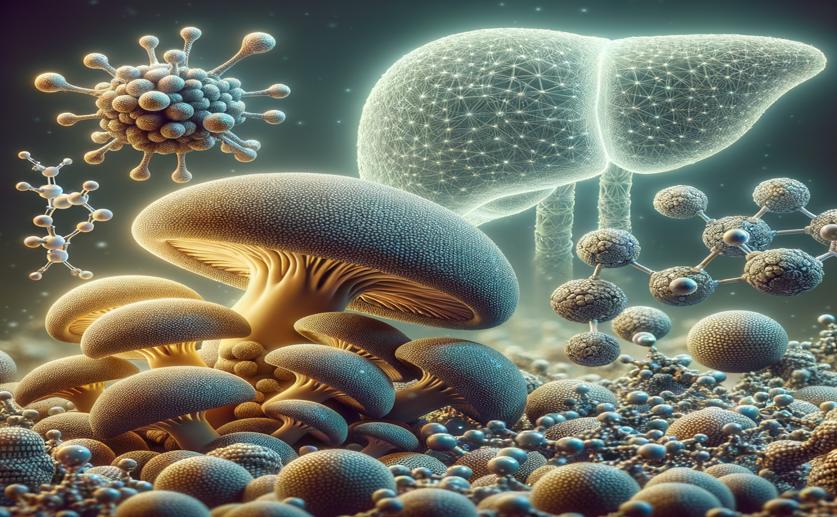
Chitosan and Mushroom Nanoparticles Improve Liver Health in Mice
Greg Howard
2nd April, 2024

Image Source: Natural Science News, 2024
Key Findings
- In a study at Tanta University, nanoparticles were used to treat liver damage in mice with Ehrlich ascites carcinoma (EAC)
- The nanoparticles improved liver function, boosted antioxidant levels, and reduced cell death in the treated mice
- These findings suggest nanoparticles loaded with natural compounds could protect vital organs in cancer therapy
References
Main Study
1) Chitosan and Grifola Frondosa nanoparticles insulate liver dysfunction in EAC-bearing mice.
Published 1st April, 2024
https://doi.org/10.1093/toxres/tfae050
Related Studies
2) Annona squamosa L. Extract-Loaded Niosome and Its Anti-Ehrlich Ascites' Carcinoma Activity.
3) Melatonin: A regulator of the interplay between FoxO1, miR96, and miR215 signaling to diminish the growth, survival, and metastasis of murine adenocarcinoma.
4) Solid Ehrlich carcinoma reproduces functional and biological characteristics of cancer cachexia.



 15th March, 2024 | Greg Howard
15th March, 2024 | Greg Howard